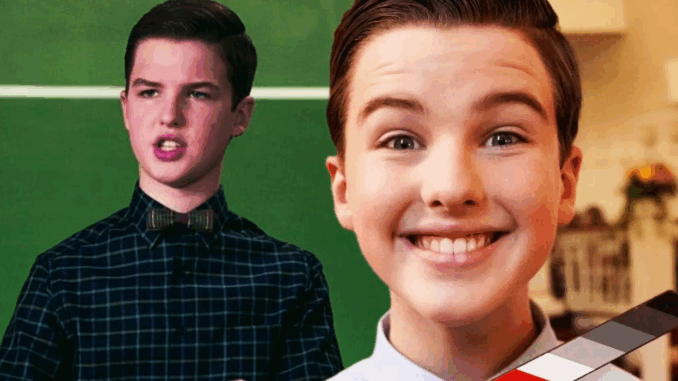
The Big Bang Theory universe, comprising both The Big Bang Theory and its prequel, Young Sheldon, has captivated audiences for over a decade. However, as the series progressed, it became evident that certain narrative opportunities were left unexplored, leaving fans to wonder about the potential storylines that could have been.
1. Sheldon’s Safety Whistle: A Timeline Tangle
In The Big Bang Theory, Sheldon proudly carries a safety whistle, a gift from his girlfriend, Amy Farrah Fowler. However, in Young Sheldon, the young Sheldon is seen with the whistle long before meeting Amy, creating a timeline inconsistency that fans have pointed out.
2. George Cooper: From Overbearing Father to Laid-Back Dad
In The Big Bang Theory, Sheldon describes his father, George, as an alcoholic with a history of infidelity, painting a picture of a neglectful parent. In contrast, Young Sheldon presents George as a loving and supportive father, contradicting the established characterization.
3. Missy’s Absence: A Sisterly Void
Sheldon often mentions his twin sister, Missy, in The Big Bang Theory, yet she is rarely seen or mentioned in Young Sheldon. This discrepancy raises questions about the portrayal of their sibling relationship and Missy’s role in Sheldon’s life.
4. The Cooper Family Dog: A Missing Pet
In The Big Bang Theory, Mary mentions that Sheldon built a “Sonic death ray” that distressed their family dog. However, Young Sheldon never introduces a family dog, leading to confusion about this aspect of the Cooper household.
5. Meemaw’s Character Evolution: From Wild to Stern
Meemaw, Sheldon’s grandmother, is portrayed as a fun-loving and unconventional woman in Young Sheldon. However, in The Big Bang Theory, she appears more reserved and traditional, suggesting a significant character shift that isn’t explained within the shows.
6. Sheldon’s Eidetic Memory: A Selective Recall
Despite claiming to have an eidetic memory, Sheldon often forgets key details about his past, such as his father’s affair or the presence of a family dog. These lapses challenge the consistency of his character across both series.
7. The Missing Grandfather: An Unspoken Influence
Sheldon credits his grandfather with inspiring his love for science. However, in Young Sheldon, there is little mention or presence of this influential figure, raising questions about his impact on Sheldon’s development.
8. The Plutonium Incident: A Timeline Discrepancy
In The Big Bang Theory, Sheldon recalls an incident involving plutonium and the FBI when he was 13. However, in Young Sheldon, this event occurs when he is 9, creating a significant timeline inconsistency.
9. Boarding School Confusion: A Misunderstood Education
Sheldon mentions being sent to boarding school at 12 due to his work with lasers. However, in Young Sheldon, he is depicted as attending a regular school, leading to confusion about his educational background.
10. The Tornado Incident: A Contradictory Event
Sheldon recalls a tornado that damaged their aluminum house, yet in Young Sheldon, their home is not depicted as aluminum, and there is no mention of it being damaged by a tornado.
11. Sheldon’s Love for Scheduling: A Character Shift
In Young Sheldon, Sheldon expresses a dislike for scheduling and routines, which contradicts his later obsession with order and structure in The Big Bang Theory. This shift in character traits raises questions about his development over time.
12. George’s Employment History: A Job Jumble
In The Big Bang Theory, Sheldon mentions that his father worked in retail and was caught stealing from the till. However, in Young Sheldon, George is depicted as a high school football coach, creating a discrepancy in his employment history.
13. The Missing Paige: A Childhood Friend Forgotten
Sheldon often mentions his childhood friend, Paige, in The Big Bang Theory, yet she is never introduced or mentioned in Young Sheldon, leaving fans puzzled about her absence.
14. The Safety Whistle: A Gift or a Gimmick?
In The Big Bang Theory, Sheldon claims his safety whistle was a gift from Amy. However, in Young Sheldon, he is seen with the whistle long before meeting her, raising questions about its origin.
15. Sheldon’s Personality: A Gradual Transformation
Sheldon’s personality in Young Sheldon is more socially awkward and less confident than the Sheldon in The Big Bang Theory. This evolution in character traits suggests a significant transformation that isn’t fully explained within the shows.
Conclusion
The inconsistencies between Young Sheldon and The Big Bang Theory highlight challenges in maintaining continuity across spin-offs and prequels. While these discrepancies can be overlooked for the sake of storytelling, they do raise questions about character development and narrative consistency. As fans continue to enjoy both series, it’s important to acknowledge these differences and appreciate the unique contributions each show brings to the Big Bang Theory universe.